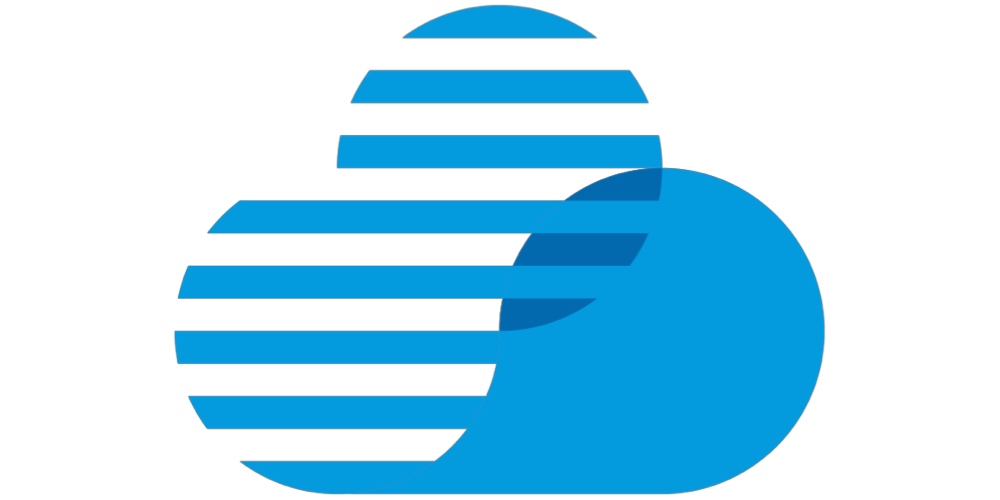With one of its competitors taking half of the cloud market, IBM is going to need a lot more data centres and some new strategies to regain market share. It has just one data centre in India and five data centres in the Asia Pacific region. But it believes that IBM Cloud Private (ICP) is the answer. It is confident of tapping into the cloud market by working closely with partners. It is also banking on technologies like AI, IoT and data analytics to increase its market share.
Amit Kumar, Executive Director, IBM Cloud, IBM India, South Asia and Andreas Hartl, General Manager & Cloud Leader, IBM Asia Pacific reveal their strategy to Digital Creed.
DC: How do you see the cloud market in India and Asia? What’s your growth like? What is IBM’s unique value proposition?
Andreas: The cloud market is poised to explode in India. We see a lot of developers here — 20 – 30% of global developers. The only way to scale that further is through a full cloud footprint. We are committed to India and will continue to invest here. Our public cloud business is growing 200% plus, at an APAC level. The hybrid cloud business is growing at 25 – 30% plus. This is in line with our targets and the customer demand that we see right now. We are seeing the biggest market demand for IBM Cloud Private (ICP). That’s because we are the only ones who can serve the private cloud market with a modernised set of applications. All our 85 products will be containerised in the next six months and all will run on ICP, natively.

Amit Kumar, Executive Director, IBM Cloud, IBM India, South Asia
Amit: Cloud is not a cost discussion anymore. Most customers have gone beyond looking for cheap compute and storage — to an Innovation narrative. Of course, customers will still negotiate on price but the business decision and technology is different from just cost. It’s about outcomes and business scenarios. For instance, one might have a customer experience problem and will ask how the cloud can solve this.
IBM has unique strengths to address this. We have the consulting teams, GBS (business consulting) and GTS (Technology consulting). We really understand the left-right of the customer. The expertise of knowing the customer’s business and bringing in the technology skill on the IBM platform is quite unique. Unlike our competitors, we own the journey.
The journeys are non-trivial. There is so much to be done in terms of regulation, understand the hybrid environment, understanding the applications, their modernisation and how will it be managed, how is it going to be secured etc.
Our competitors do this very well. But we know the business and we can also hand-hold the customer, and actually own the journey. We own the journey, we own the consulting, we own the technology piece and we own the infrastructure as well.

Andreas Hartl, General Manager & Cloud Leader, IBM Asia Pacific
DC: What are your focus areas? Where do you see the opportunities?
Andreas: We focus on the analytics business with data science and data governance. There are data lake opportunities that are outgrowing the rest of our portfolio. AI is the biggest opportunity for us. There are opportunities in cognitive services, and cognitive solutions. If you see the banking industry, there is a $5 million footprint in an organisation.
DC: How do you differentiate yourself from the competition?
Andreas: When it comes to acquiring new customers, our differentiator is AI, data, and the very distinct offerings that we have. Take for instance, SAP on IBM cloud. We offer that as a managed service. Our competition cannot offer this directly — they need partnerships. They offer it as an unmanaged service and leave it to the customer to manage it. SAP HANA is the trigger point — the support for SAP HANA is time-bound until 2020. All SAP customers must migrate before 2020. So we are doing SAP migration on steroids.
VMware migration on IBM cloud is another differentiator, and we do that in partnership. We have a unique technology to move those VMs as they are — in minutes and not months. That’s a unique advantage for us, which our customers do not have yet.
Amit: Our competitors have a head-start in terms of number of data centres etc. But I don’t think customers are just worried about that. Yes, they have more data centres than we do. Our strength is the hybrid ability. If you look at the ICP stack, we have the ability to modernise the application. We have the ability to understand the business context and the customer dimension, disaster recovery, security, and then get the application ready to be ported to the cloud.
Take for example the partnership with VMware. Unlike the competition, we have the ability to look at it through a single console and move the VM seamlessly into the IBM Cloud. That is really unique and valuable. So we have our unique niches and strengths.
Andreas: We don’t have data centres in the majority of our markets (like Thailand and Malaysia), but the path to a resolution is ICP. We partner with service providers under contract that host ICP, and provide microservices architecture to their customers on behalf of IBM. In India, we have one data centre in Chennai, and we will invest further in it. How do I failover? Through ICP. We segregate our data centre and include ICP as a solution for it. What we are doing in Australia, which is a heavily regulated market, is a good example. But we have a plan for India.
Our competitors have a head-start in terms of number of data centres etc. But I don’t think customers are just worried about that. Yes, they have more data centres than we do. Our strength is the hybrid ability. If you look at the ICP stack, we have the ability to modernise the application. We have the ability to understand the business context and the customer dimension, disaster recovery, security, and then get the application ready to be ported to the cloud.
— Amit Kumar, Executive Director, IBM Cloud, IBM India, South Asia
DC: You mentioned earlier that you own the customer journey. Can you give us some examples of how you manage those customer journeys?
Amit: There is this large automotive company in India who wanted an IoT solution in their cars. We went in with our consulting teams and designed an IoT solution for their cars, we put the end-to-end business case together, put the end-to-end technology case together and now we have a Watson IoT platform in those cars running on the IBM cloud.
There is a large water purifier company where we did this for millions of their devices.
We have got a unique strength in our IoT platform and we have been able to marry that with the IBM cloud offering.
We are signing some multi-million dollar deals on a SaaS model.
I believe our partners are weak in this area (data science). IBM is working with its partners to educate them on our data science through what we call the ‘AI Ladder’.
— Andreas Harti, General Manager & Cloud Leader, IBM Asia Pacific
DC: What are your plans for the channel in India?
Amit: Channel is a top priority for us. That’s because IBM has a strong enterprise mindshare. With the cloud coming in, we see an opportunity outside of the top 200 accounts and we are making a significant investment in the channel.
It is not just the programs but also the engagement models. In January, IBM took an Asia-wide decision to go completely indirect outside of our top 17 accounts. Our channel partners love that approach.
The second thing is energising the partner ecosystem. We are talking of ICP, Watson for data, VMware — we’ve got a bunch of offerings.
We picked up four hero campaigns that we are taking to market along with our partners. The first hero campaign is AI Everywhere, which is the IBM Watson AI campaign. We have industry uses cases and we work with certain partners to take them to customers. There has been a sizeable pipeline developed over the last couple of months.
The second campaign is for ICP or private cloud. We work with a different set of partners who understand the enterprise and the applications and how to modernise them.
The third campaign is working with VMware and taking their customers to the cloud. We went to the market in India and got significant traction and a tremendous amount of opportunities. We are closing deals on that partnership.
The fourth is the Data Lake campaign. It is directed at our large data warehousing accounts or wherever we have data, and we bring intelligence to that data.
Channel is a top priority for us. That’s because IBM has a strong enterprise mindshare. With the cloud coming in, we see an opportunity outside of the top 200 accounts and we are making a significant investment in the channel.
— Amit Kumar, Executive Director, IBM Cloud, IBM India, South Asia
DC: In which industries are you seeing traction? Where do you see the opportunity?
Amit: We are seeing traction in the manufacturing sector. There are opportunities outside of the top enterprise accounts. There are many small companies, global startups that are advanced in their use of technology and data. These companies do not have hundreds of thousands of employees.
DC: Managing data requires expertise and skills from data scientists, which are rare. How do you give your customers access to those rare skillsets?
Amit: This is actually an industry problem and is not unique to IBM. Compared to other countries, India has a much more vibrant ecosystem of talent.
There is a need for a vibrant ecosystem and partners to provide those (data) capabilities. We address this through the work we do with ISVs and solution partners, who build solutions on top of the IBM platform and providing that choice to the customer.
Do we leverage the data scientists from the industry to serve our enterprise customers? Our approach is slightly different. We have a unique strength within IBM. We have a huge developer ecosystem in India within the IBM team. We have 4.500 engineers at IBM Software Labs that do development work and a lot of them do work on data as well. We leverage them to showcase IBM technologies. Our large customers have access to the IBM Global research facilities in India as well.
Andreas: I believe our partners are weak in this area (data science). IBM is working with its partners to educate them on our data science through what we call the ‘AI Ladder’.
You start on the data platform and then move on to machine learning, creating extra intelligence and then get an AI level stack. You need a data scientist to interpret the data. It is a unique skill. So we develop the data platform partners and upskill them so they gain the data science skills.
The learning experience comes not just from selling the product (we have a data science offering on the Watson Data Platform) — but also from our research organisation. You gain far deeper insights on managing the data platform solutions when you develop the product. That is a unique advantage we have and we want to scale it through our partners.









